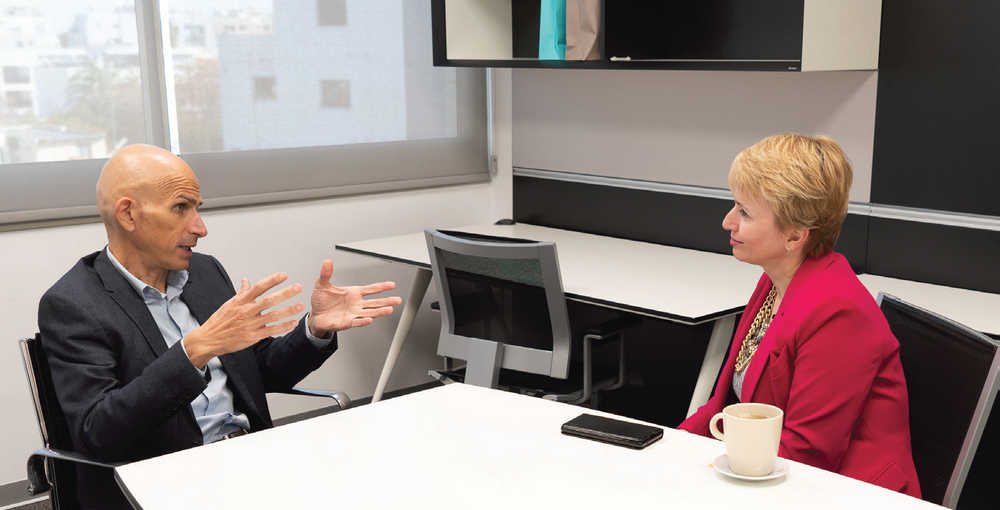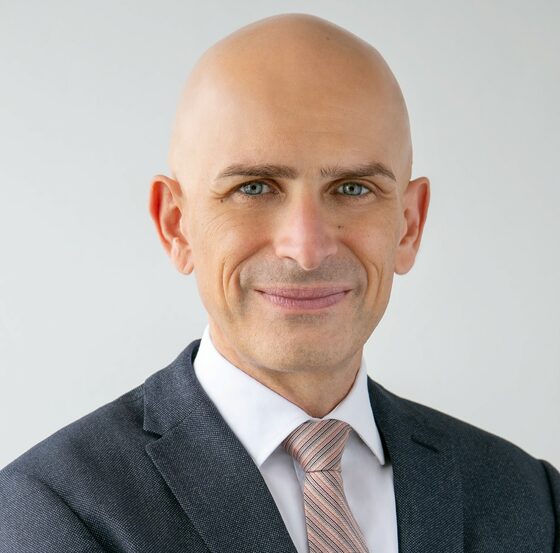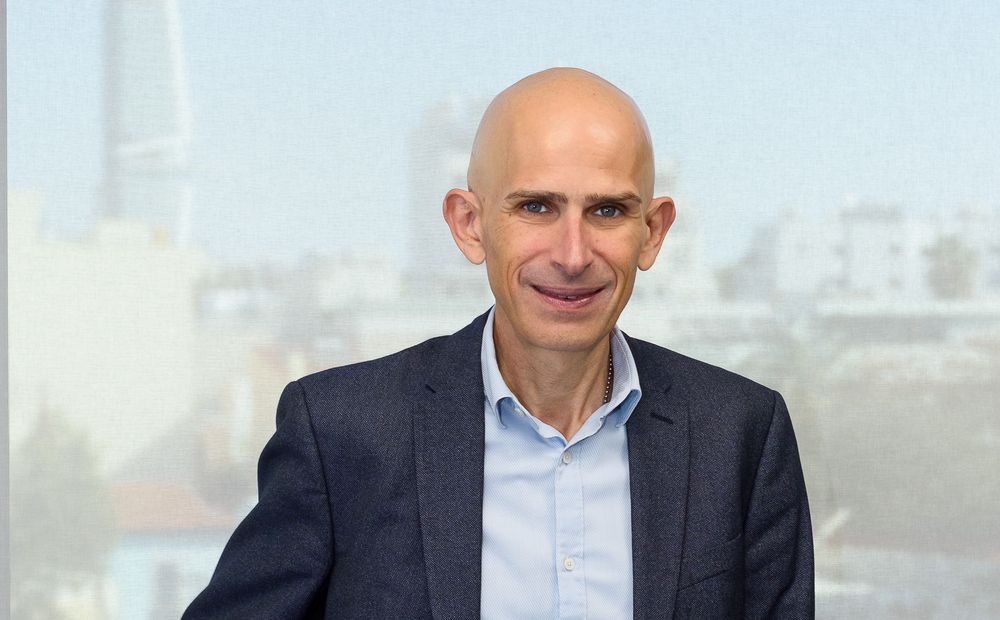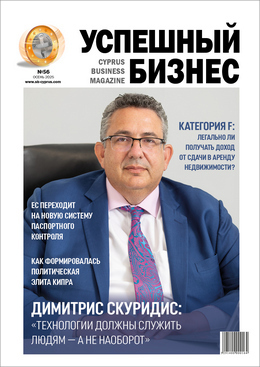Yannis Matsis, head of the Cyprus office for MUFG Investor Services, the global asset servicing arm of Mitsubishi UFJ Financial Group, speaks to the Successful Business Magazine about how the company represents all the best one can find in both the Anglo-Saxon and Japanese business cultures and what Cyprus needs to do to attract big investment funds, international fund managers and administrators to the island.
Parent company of MUFG Investor Services is Japanese, the business you conduct is international, and your office in Cyprus will serviceyour existing client base globally. Is that not a lot to juggle on the business/ cultural front?
Yes and no. The way we deliver our services is Anglo-Saxon in that we are very open and flexible. As an employer, we are very modern, all-inclusive, with full transparency and very little hierarchy. But how we focus on our long-term goals and on ensuring zero error rates in what we do for our clients is very Japanese. Our approach – treating our clients as our trusted partners – is very much Japanese-driven...
It is very interesting that a Japanese company that clearly thinks long term, low risk and has a conservative business approach would choose Cyprus as its base. It may mean that Cyprus is competitive compared to other EU business destinations. How was the choice made?
We are one of the largest fund administrators globally and our clients include the biggest investment managers in the world. Our business is a 24/7 model. We follow the sun, our aim is to address and satisfy customer needs without regard to geographic location or time zone.
So when the company decided to establish a new office in this particular time zone, our parent company set out to find what they considered to be the best and most suitable country in Europe. Cyprus proved to be the best option and was chosen for a variety of reasons. Of course, the fact that Cyprus is in the EU was important but so too were many other countries that we considered. Cyprus offered other advantages: the fact that almost everybody speaks English here, which isn’t the case in many other European states; the fact that in addition to EU laws and regulations that apply here, common law like in the UK also applies because of the island’s past. Then there is the location – not just in Europe and a part of the EU but close to the Middle East! Also, there is the quality of life. Last but perhaps the most important to us, is the quality of localtalent that can be accessible to us as an employer. We always look for the best quality centres where we can hire well, train well and be in a position to ensure and offer our clients the best quality service. Our choice of Cyprus proved this to be the case.
We have been receiving very high quality CVs, and we have been impressed by the exceptional quality of professionals that we have hired here, in Cyprus, so much so that we decided to expand our initial plans to employ around 100professionals, and instead to grow the Cyprus office up to 300 professionals over the next few years.
What countries are Cyprus’ main competitors when companies set out to choose a place for their offices?
Every European country is a potential competitor but frankly Cyprus ticks off more boxes than the others. Of course, you never find a perfect place, but you aim to find a place that best satisfies most of your requirements. Cyprus is very strong in this. Our biggest disadvantage is the air connectivity.

What about reputation?
Reputation of the island, due to bad practices of the past is indeed an issue and poses a disadvantage to Cyprus as a business destination. Back in the 2000-2013 period, Cypriot banks had low standards and the compliance level was not very high. However, since then the island has fully and comprehensively addressed these issues.
If you were to name the most important steps Cyprus should take in the immediate future to change and improve, what would they be?
Cyprus doesn’t have much to do – we have mostly done it. What Cyprus needs is more marketing and exposure. We now have international best standards on areas of compliance. We just have to go out there and communicate it, making sure we avoid scandals while going forward. The reality is that we fixed it. Now, it is about how we market it.
When I was Chairman of the Association of Cyprus Banks, together with the deputy CEO of the Bank of Cyprus and the CEO of the Cyprus Development Bank (CDB), I visited the United States Congress and Senate to explain our compliance standards and policies because Washington had been applying pressure on us to improve them. We sat with various Committees of the Senate and the Congress, including the Finance Committee and the Armed
Forces Committee – the latter may appear strange to the layman, but it does demonstrate the importance that the United States is placing on issues of Anti-Money Laundering and Countering the Financing of Terrorism. So we went item by item through our policies, through all that we had changed, and we convinced them. In fact, the Finance Committee stated that our standards were stricter than theirs.
So what we need is marketing. We need to go out there, see the important stakeholders, talk, meet the press, convince through communicating our tangible actions, project the positive image that I believe we developed, and most importantly walk the talk. In other words, we must continue to show that we are serious about what we do, avoid scandals and keep on maintaining and implementing the highest standards. The reality is that reputation takes years to build and a day to destroy.
So what improvements have there been? Are we doing better than 10 months ago, than two years ago?
Two years ago we had just one corresponding bank. All the banks in Cyprus – the Bank of Cyprus, Hellenic Bank, all the smaller banks – had only one corresponding bank,this being Citibank. Had the day come and this one corresponding bank decided to leave, the whole island would have been left frozen… But we did all the corrective work and today the biggest Banks have more correspondents, such as the Bank of New York (BoNY) and JP Morgan also – a huge sign of improvement.
As you noted, there are two sides to every coin. The reverse side of improving all these banking procedures is that our banks have now become very difficult to work with…
I agree. There is a problem and it arises because of two issues. The first is that the pace of change to raise the compliance level was huge so staff in the banks had to struggle in order to keep up in terms of training and understanding the new policies and procedures. Secondly, systems lagged behind because introducing new systems in banking is notoriousy difficult. So our policies are strong and reflect international standards but implementation of these policies still requires hard work and that implementation comes down to new technology and staff training. However, the Banks fully recognise that, and, driven by the Central Bank, are working hard to get there.
What do you think the immediate future holds for Cyprus? What changes, challenges, problems or benefits do you expect in 2023?
It is certain that the Cyprus economy will grow stronger than in Europe. We keep on attracting foreign companies and this brings revenue from abroad to the island. This is the best form of revenue, the best quality business for the country. Remember that this revenue is spent by the foreign companies that establish base here to pay salaries and rent, and is consumed locally, in sectors such as schools, supermarkets, food and entertainment, real estate, the auto industry, etc.
What I am mostly concerned about currently – and this is a global and not just a Cyprus phenomenon – is inflation. This has been caused by a number of factors, including excessive liquidity, the suupply-chain constraints due to the pandemic and the war in Ukraine. Its current level, both in the Euro-area and the US is very worrying and with the end of the war not in sight, there are no signs as to when it will abade.
 Yannis Matsis
Yannis Matsis
Managing Director, Head of Cyprus, MUFG Investor Services
Yannis heads the new MUFG Investor Services office in Cyprus, expected to grow to 300 staff over the coming 4-5 years. Yannis has 30 years of professional experience, having served as CEO of Hellenic Bank, as Global Head of Credit, Interest Rate and Foreign Exchange Derivatives at Mizuho in London, and as Global Head of Credit Derivatives at ING Barings in London. He also co-founded Point Nine, a Financial Technology company, recently acquired by MUFG. Yannis currently serves as Chairperson of the Boards of the Cyprus Institute of Neurology and Genetics and of Point Nine Data Trust. He previously served as Chairperson of the Boards of the Association of Cyprus Banks, as Chairperson of Artemis Bank Information Systems, a private Credit Bureau, and as a Member of the Boards of Hellenic Bank and of the European Banking Federation in Frankfurt.
![]()
MUFG Investor Services is a leading asset servicing provider for the global investment management industry, operating from 16 locations worldwide. With over $770 billion in assets under administration, MUFG Investor Services is a top fund administrator globally. It is a core business of Mitsubishi UFJ Financial Group (“MUFG”), one of the largest banks with more than US$3.3 trillion in assets.







